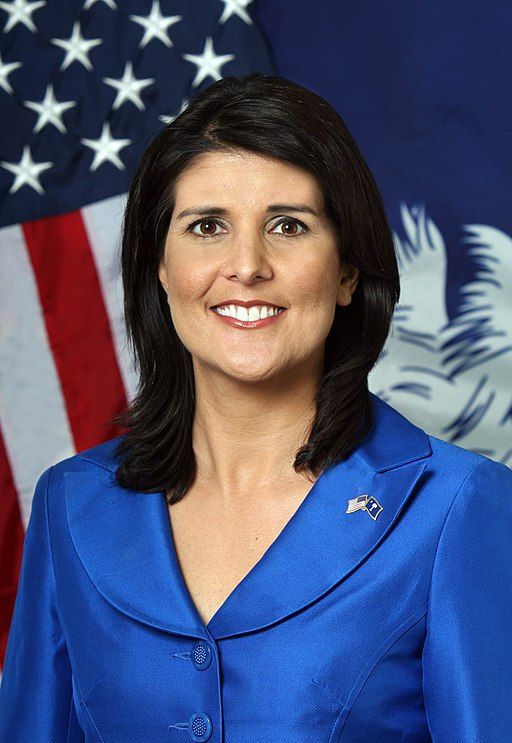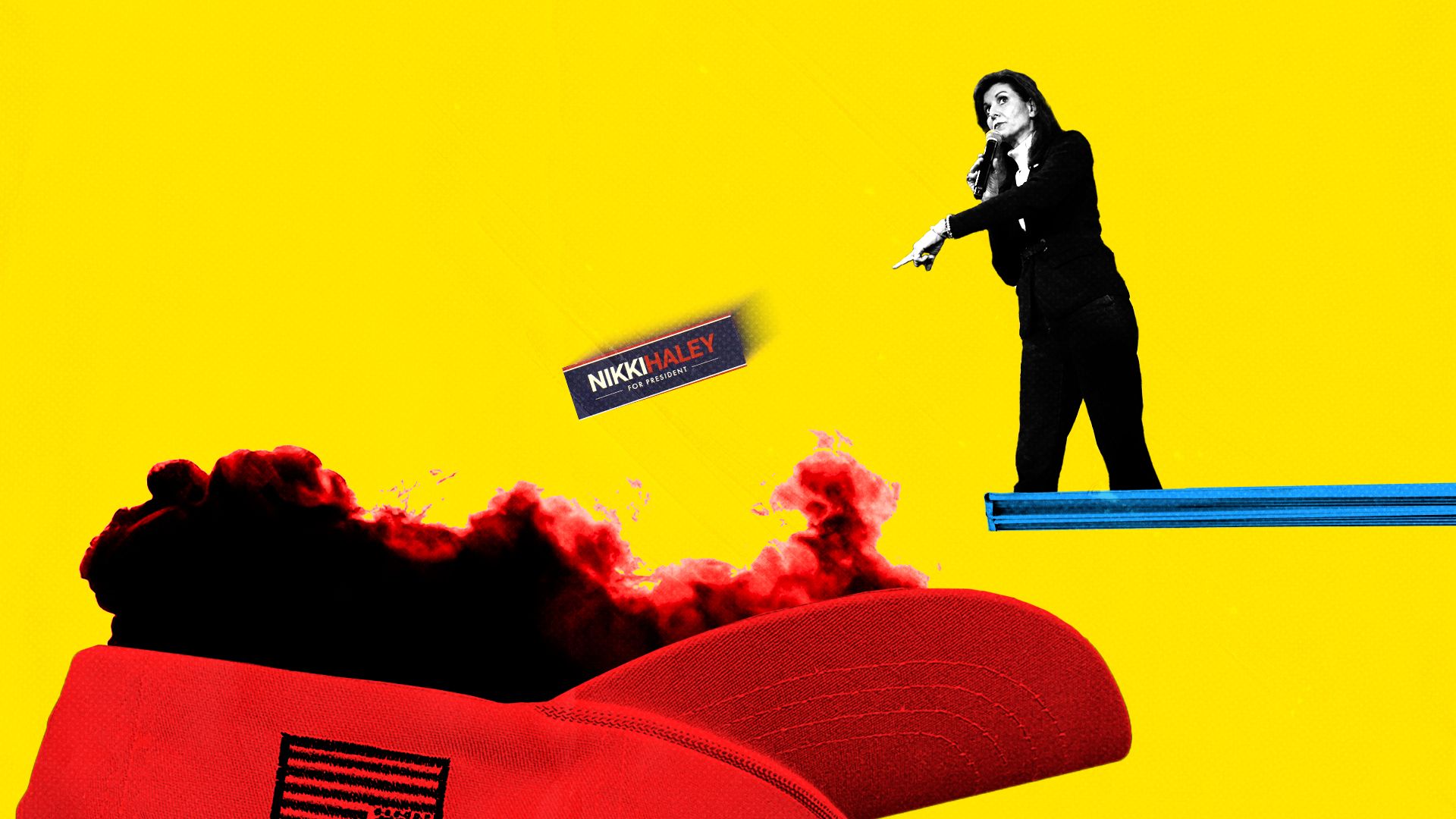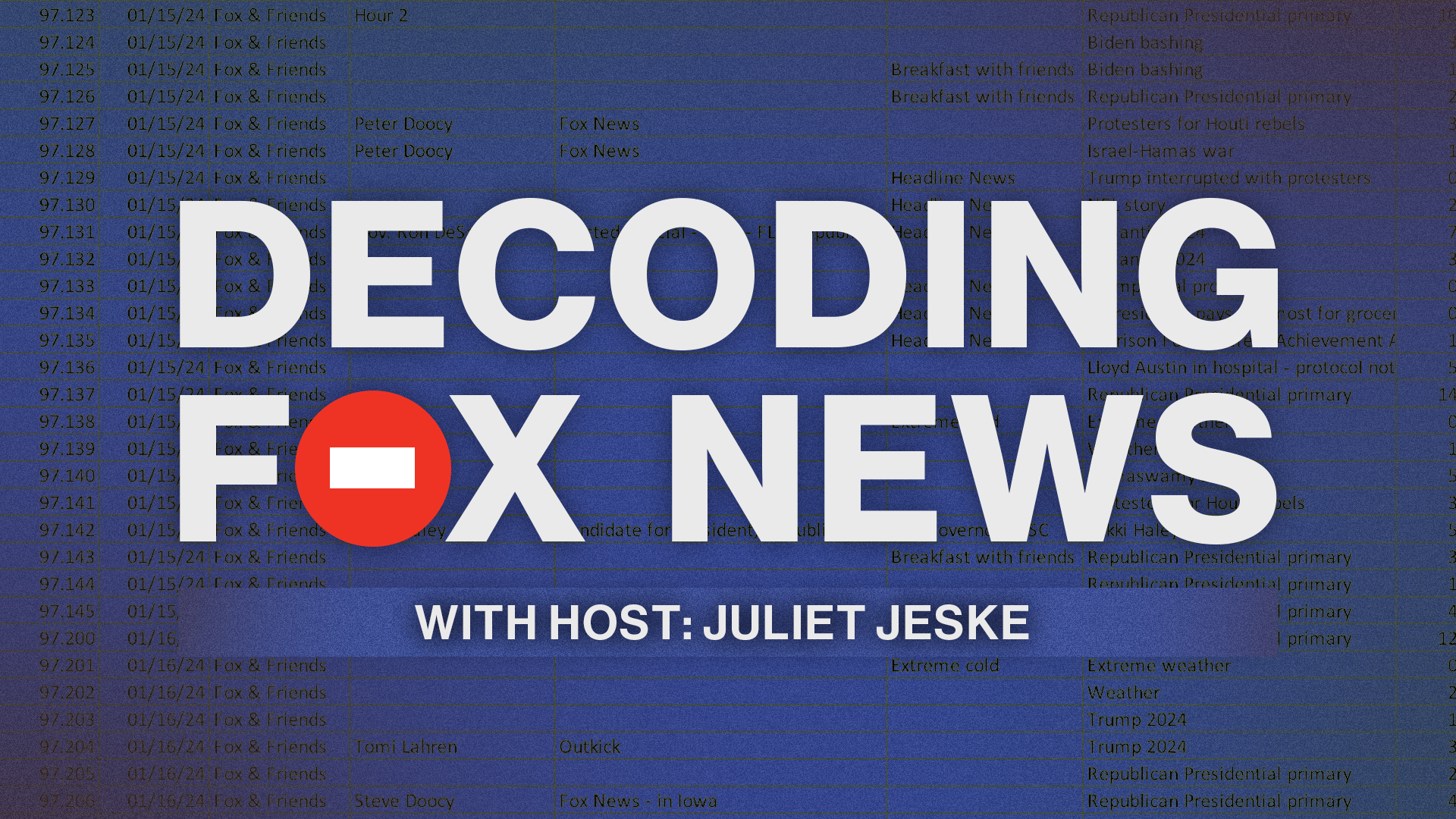*This is an abbreviated version of the special deep dive into the Koch family history and dark and lasting influence on American politics. The full version was included in our weekly Resolute Square Campaign Memo - available only to members of Resolute Square.You can become a member here for this and other members-only benefits.
By Stuart Stevens
There’s a phrase that the American Industrial Political Complex likes to toss around when discussing campaigns: the invisible primary. It’s a reference to the competition for financial support and political endorsements that occurs long before election day.
This week, Nikki Haley won the invisible primary for the backing of the single most powerful private political organization in the history of American politics: The Kochs.
“The political network founded by the billionaire industrialist brothers Charles and David Koch has endorsed Nikki Haley in the Republican presidential nominating contest,” the New York Times wrote on Tuesday, “giving her organizational muscle and financial heft as she battles Gov. Ron DeSantis of Florida to be the top rival to former President Donald J. Trump.”
Who are the Koch brothers and how did they emerge as a shadow government with vast influence over American politics?
The story of the Koch family is a uniquely American one. The sweep and ambition, and tragedy, depicted in Citizen Kane is a perfect model for the lives of the four Koch brothers. It’s a story that begins with vast inherited wealth of dubious origin, a fortune made by a domineering father who helped both Stalin and Hitler develop the oil industries critical to their war efforts. In 1938, Fred Koch wrote to a friend extolling the virtues of what soon would be the Axis powers. “Although nobody agrees with me, I am of the opinion that the only sound countries in the world are Germany, Italy, and Japan, simply because they are all working and working hard.”
The four brothers were raised in the very normal setting of Wichita, Kansas, in a truly abnormal home. Their father married a beautiful Wellesley socialite and went about constructing a life that was more Great Gatsby than Kansas heartland, one that included a massive home described as “baronial,” with the mounted heads of exotic animals shot on African safari, polo ponies, and a German governess who was a great admirer of Hitler. There was almost nothing about the formative years of the four Koch brothers that could be considered part of the American mainstream.
Predictably, by the time they were adults, the boys had become four very wealthy, maladjusted brothers who developed political views as unusual as their upbringing. The Koch brothers are often described as “conservatives,” but that is the tiniest bit euphemistic, like describing Niagara Falls as “wet.”
Heavily influenced by their father’s tales of the oppressive role of the state in Stalin’s Russia, where he helped build oil refineries, Charles and David Koch became enamored of the Austrian school of economics led by Friedrich Hayek, who won the Nobel Prize for Economics in 1974. Hayek is the patron saint of the Libertarian movement, and in many ways the Libertarian Party in America became a natural home for the Kochs. In 1980, David Koch ran for vice president on the Libertarian ticket and donated more than $2 million to the party, a huge amount for a political organization that was little more than a loose affiliation of oddball intellectuals and
anti-government cranks.
The 1980 Libertarian campaign that featured David Koch as the party’s vice-presidential candidate advocated the repeal of Social Security, Medicare, and Medicaid. It called for an end to all federal speed limits and for the privatization of public schools, railroads, highways, and all public lands.
Running as the vice-presidential candidate on a Libertarian presidential ticket was a harmless indulgence, like kids playing with toy guns. But in the decades that followed, the Koch brothers infiltrated the right-wing political infrastructure at every level. They funded the Cato Institute, a libertarian think tank, and the conservative Heritage Foundation to help create a policy framework easily adopted by Republican candidates and lawmakers, many of whom ran with little knowledge of government or a basic ability to articulate an agenda other than offer
bromides like “smaller government, less regulation, lower taxes.”
Through various organizations—some directly political supporting candidates and some operating as charitable foundations’ “issue advocacy”—the Kochs built a vast network that functioned as both its own political party and shadow government. By 2015, they had 1,200 full-time staffers in over one hundred offices around the country, three and a half times more employees than the Republican National Committee. They recruited candidates, financed their campaigns, and provided policy support and opposition research on their opponents.
But then Trump happened. Trump was everything the Koch brothers hated. Long advocates for liberal immigration policies that are good for providding workers for businesses, Charles Koch said of Trump’s call for a Muslim ban, “That’s reminiscent of Nazi Germany. I mean, that’s monstrous.” Instead of privatizing Social Security and Medicare, the Koch goal for decades, Trump defended both as federal necessities and attacked Republicans.
The Kochs were pressured to support Trump, but they refused. “It is hard for me to get a high level of enthusiasm because the things I’m passionate about and I think this country urgently needs aren’t being addressed,” Koch said in an interview in the Financial Times. But when asked by ABC’s Jonathan Karl if he planned to help with the “Never Trump” movement, Charles Koch answered negatively. When pressed why, he said, “Because that’s not what we do. What we’re trying to do is build alliances to make the country better.”
The Kochs could have used their political empire to rally a primary challenge to Trump in 2020, but they did not. Instead, they publicly declared that they were staying out of the presidential race. Which didn’t mean their vast machine did not help elect Trump. By backing Republican senatorial and congressional candidates in key races around the country, they were driving votes to Trump, even if that was not their avowed intent.
It was like the plot of “The Terminator.” The Koch brothers had built a vast political machine then seemed powerless to stop the machine from turning against them. So now, 8 years since Donald Trump emerged, the Koch Death Star has finally decided to turn its power against Donald Trump by supporting Nikki Haley.
Will the Kochs be able to push Nikki Haley past Donald Trump? I doubt it. Donald Trump dominates the Republican Party because he gives Republican voters the purest form of what they most desire. He is a white grievance candidate in a party that is 85% white desperately trying to hang on to power in a country that is 60% white and headed to become a minority- majority country.
And when Nikki Haley loses, will the Koch machine admit it failed to defeat Donald Trump for the Republican nomination and do what is essential to protect American democracy by supporting President Joe Biden? No, they won’t. They will say they are staying out of the presidential race and pour vast resources into the Republican candidates who all support Donald Trump.
At the end of his life, Charles Foster Kane of “Citizen Kane” was left to wonder how it all went so wrong. So it may be If a newly elected President Donald Trump turns his retribution against the Koch industries for being insufficiently loyal. And if it happens, they will have no one to blame but themselves.









